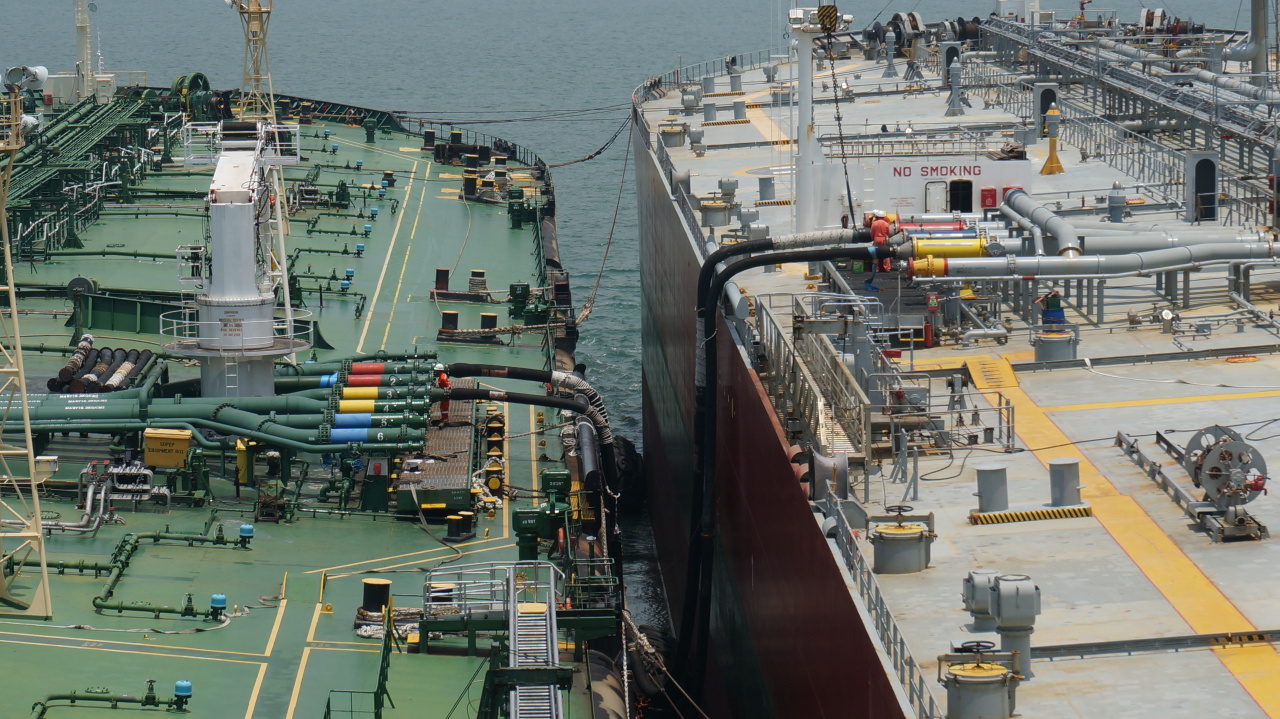A trading unit of SK Innovation, which owns the country’s largest refiner SK Energy, will quadruple its offshore low-sulfur fuel supply in 2020 to meet the growing demand for diesel fuel with substantially lowered sulfur content under toughening emission control regulations, the company said Monday.
SK Trading International plans to increase its oil blending capacity from 23,000 barrels per day to 90,000 barrels next year, aiming to become the No. 1 provider of low-sulfur fuel in Asia.
 |
An SK Trading International ship (left) receives high-sulfur fuel from an oil tank for oil blending process. (SK Innovation) |
The plan will be supported by SK Energy’s vacuum residue desulfurization facility which starts full operations in April. Its supply of low-sulfur fuel can go up to 130,000 barrels per day, the company said.
SK Energy and SK Trading International are both subsidiary of SK Innovation.
The trading unit started the oil blending business in 2010, delivering low-sulfur fuel onboard a tanker after processing half-finished products.
The business satisfies regulatory measures by the International Maritime Organization to be implemented next year. IMO has obligated ships to lower the portion of sulfur in marine fuels from 3.5 percent to 0.5 percent. By lowering it, the quantity of sulfur oxide emission will be slashed by 86 percent, according to the global agency.
SK Trading’s target of providing 50 million barrels of low-sulfur fuel starting next year will reduce sulfur oxide emissions by 100,000 tons a year, equivalent to sulfuric gas emitted from 200 very large crude carriers a year, the company said.
In line with toughening regulations, SK Trading expects to see a significant growth in demand for low-sulfur fuel oil and marine gas oil next year. Citing International Energy Agency data, it said the demand for low-sulfur is expected to increase from 100,000 barrels to 1 million barrels per day.
By Cho Chung-un (
christory@heraldcorp.com)








